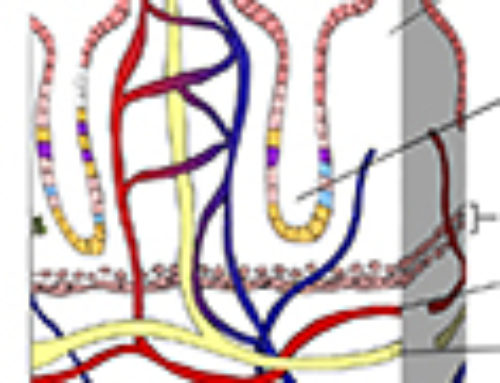Obsessive Compulsive Disorder
Obsessive-compulsive disorder (OCD) is an anxiety disorder that is defined by the drive to perform certain ritualistic behaviours that are very difficult to ignore, and often become distressing. These behaviours can include obsessions and compulsions, which become life consuming and make it difficult to perform every day tasks. Obsessions usually include repeated and persistent thoughts that appear to be irrational. Compulsions are repetitive behaviors that people with OCD feel driven to perform, often as a way to reduce the anxiety or distress related to experiencing these obsessions. While OCD was previously thought to be very rare, the condition is actually quite common. For example, approximately 2.2 million Americans have been diagnosed with the condition. OCD can affect adults and children. In children the disorder usually begins in adolescence or during early childhood, around the age of 10. In adults, OCD typically begins around the age of 21.
Those suffering from OCD can experience a decrease in their life quality because the condition often dictates how most daily tasks are carried out. People often become consumed with carrying out the compulsive behaviors or rituals that are characteristic of OCD. Common compulsions include frequent hand washing or continuously checking doors to make sure they are locked. While most adults are able to recognise that their obsessions and compulsions are not rational, children are often unable to understand that the anxiety they are feeling surrounding certain thoughts or tasks is not normal. The affect of OCD on the lives of children and adults with the condition can be severe if left untreated, as children can find it hard to go to school and adults may find it difficult to work or form relationships, as their lives often revolve around they compulsive behaviours.
People with OCD are often ashamed or embarrassed about the condition, but consultation with a physician or mental health professional can help to understand ritualistic behaviours or excessive anxiety. Behavioural therapy can also help to change the thought patterns that lead to obsessive behaviours and compulsive actions, while medication can help to alleviate any chemical imbalances in the body that may be affecting normal thought processes.
Signs and symptoms
OCD symptoms include obsessions and compulsions, which can become severe and time-consuming.
Obsessions
Obsessive symptoms include repeated, persistent, unwanted thoughts, images or impulses that are involuntarily or appear to be irrational. These obsessions often intrude on daily life and make other tasks difficult to accomplish. Obsessions that are typical of OCD include:-
- Repeated or irrational doubts or fears
- A fear of germs or dirt
- The need to have things neat and ordered, or perhaps symmetrical
- Aggressive or horrific thoughts
- Sexual images or impulses
The symptoms that can manifest from these obsessions can involve:-
· A fear of touching others objects or people from fear of being contaminated by dirt or germs
· Incessant hand washing leading to irritation or dermatitis
· Repeated doubts about locking the door or turning of the stove
· Intense distress if objects are not ordered, orientated correctly or lined up
· Horrific images of hurting others
· Repeated, disturbing pornographic thoughts
Compulsions
Compulsions are repetitive behaviors that people with OCD feel driven to perform. Those suffering from OCD perform these repetitive behaviors as a means of preventing or reducing the anxiety and distress related to experiencing obsessions. People can often make up rules or rituals to follow, which help control the anxiety they feel when they have obsessive thoughts. Often, compulsions will revolve around:-
· Repeating actions over and over, such as checking, counting or arranging items so they appear orderly
· Demanding reassurance to relieve anxiety
· Washing and cleaning
Causes and Risk Factors
Scientists have not identified a definite cause of OCD, but there are several factors that appear to explain why some people might be more vulnerable to the condition.
Biology
OCD may result from changes in body chemistry. For example, low levels of serotonin, a chemical messenger in the brain, have been linked to OCD.
Environment
OCD may also result from behavioural habits that are learnt over time. Stressful events can also trigger the thoughts and distresses that lead to the ritualistic behaviours that are characteristic of OCD.
Family history having parents or family members with OCD can increase the risk of developing the condition. However it is not known whether this is genetic, or because people learn ritualistic or obsessive type behaviours from others.
Pregnancy appears to increase the risk of OCD, but it is not clear why. Often pregnant woman or new mothers suffering from OCD will have distressing thoughts of harming their baby.
Diagnosis
There are no laboratory tests that can confirm a person has OCD, but the condition can be diagnosed by a mental health professional by evaluating the obsessions, compulsions and overall state of mind of an individual. Obsessions and compulsions are identified according to special diagnostic criteria. A physician can also check for physical signs of the disorder, such as dermatitis from frequent hand washing. A health care professional may also wish to speak to friends or family members to obtain insight into the behaviours of an individual to confirm OCD diagnosis.
Obsessions are defined by being:-
· Thoughts, images or impulses that cause distress
· Thoughts that are not ‘normal’ worries, which are persistent and recurrent
· Thoughts, images or impulses that are difficult to ignore
Compulsions are defined as:-
· Repetitive behaviours or acts, such as hand washing, counting or constant checking, which the sufferer feels driven to perform
· Behaviors or acts with the goal of relieving the anxiety felt from obsessions
For OCD to be diagnosed, the sufferer must realise that these obsessions and compulsions are either excessive or unreasonable, and that they significantly interfere with their daily life.
Complications
OCD becomes a problem when sufferers avoid social behaviours, such as hand shaking to avoid the anxiety felt from the action, or when constant checking or worrying prevents them from carrying out daily tasks or leading normal lives. OCD can prevent people from leaving their homes for fear of leaving a light or the stove top on. Leaving OCD untreated can make life unpleasant and difficult for the sufferer. Because OCD can be so distressing, it can also increase suicide risk or the abuse of drugs or alcohol as coping mechanisms.
Treatment
Although treatment does not often cure OCD, finding solutions to help minimise the symptoms associated with the condition can help people lead healthy lives. There are two main ways of treating OCD.
Behavioural therapy is an effective way of treating OCD in adults and children. This treatment works by retraining the thought patterns and routines that lead to compulsive behaviors, so that they are no longer necessary. One approach, which is called exposure and response prevention, can be very effective at treating OCD. This technique involves gradual exposure to a feared object or obsession, such as dirt, and teaches a healthy way of dealing with it. While this technique requires practice to develop the new though patterns, many people with OCD show symptom improvement with this type of behavioural therapy.
Medications
Many people with OCD benefit from taking psychiatric medications, and antidepressant type medications are often effective treatments. Antidepressants can be beneficial for OCD sufferers by increasing the level of serotonin in their body. These types of medications work by preventing any serotonin that is pumped out of cells from being readsorbed. As such, these types of medications are often referred to as serotonin re-uptake inhibitors. By increasing the amount of available serotonin, more can be used to send chemical messages that help regulate the excessive anxiety and obsessive-compulsive thoughts related to OCD.
Medications that are specifically approved to treat OCD include Clomipramine (Anafranil), Fluvoxamine, Sertraline (Zoloft) and Paroxetine (Paxil). There are many side effects associated with these medications, some of which can be very serious. These include:-
· Dry mouth
· Weight loss or gain
· Headache
· Nausea
· Increased sweating
· Drowsiness or Insomnia
· Increased or decreased appetite
· Constipation or diarrhea
· Tremor
· Dizziness or motion sickness
· Aggression
· Heart attack
Prevention
Because a specific cause has not been identified for OCD, there are no specific ways to prevent the condition from developing.
Self-care
OCD is a chronic condition, which means it can require long-term management. Combining treatment with self-care strategies can help control OCD-related symptoms, so that sufferers can lead healthy lives, and not allowing anxiety driven obsessions and compulsions to affect their daily tasks.
Strategies that can lessen the impact OCD can have on every day life include:-
· Learn about the disorder so that you can understand it. This will also help you manage it better
· Stick to a treatment plan, even if it may be difficult or challenging
· Take medications as directed and talk to a health care professionals about side effects or any other concerns you may have
· Avoiding resorting to alcohol or illicit drugs as coping mechanisms
· Join a support group to share experiences with others in a similar situation
· Become involved in social activities, rather than becoming isolated or withdrawn
· To be afraid to ask loved ones from support or encouragement





Leave A Comment